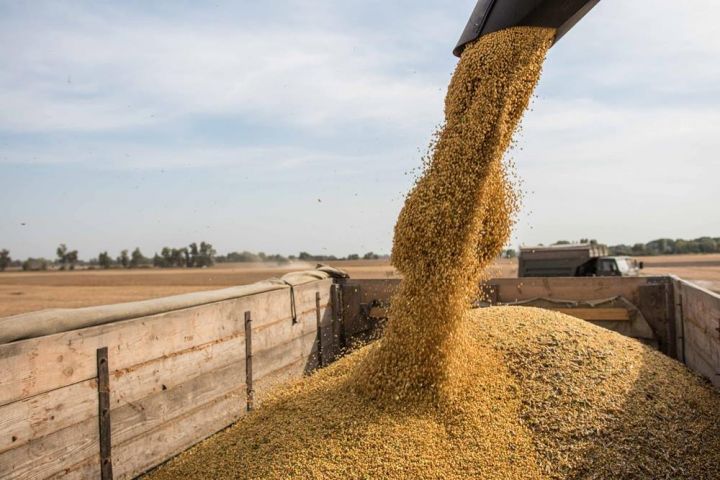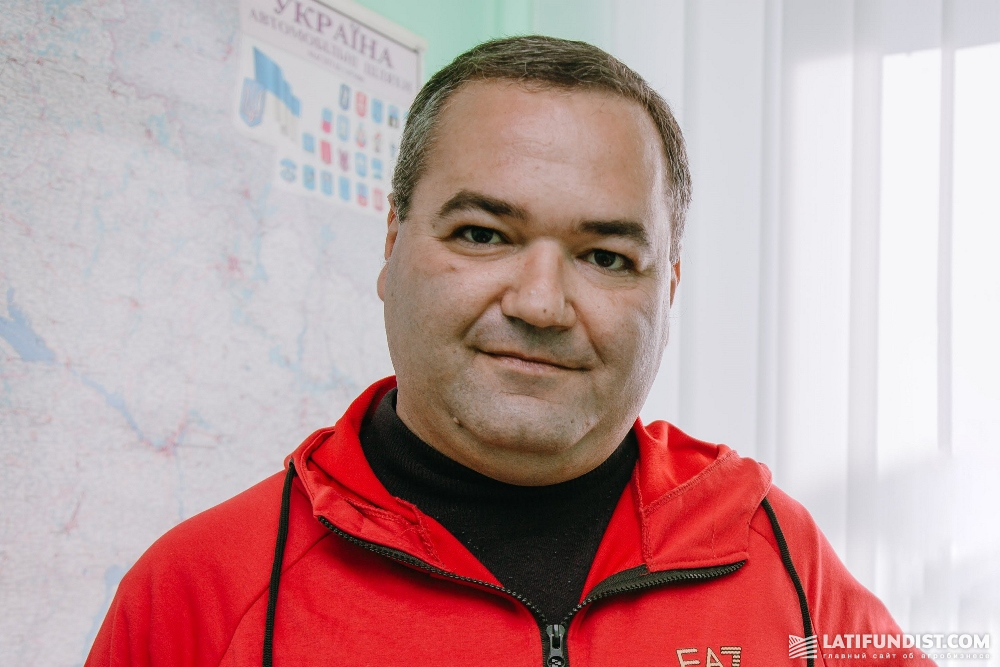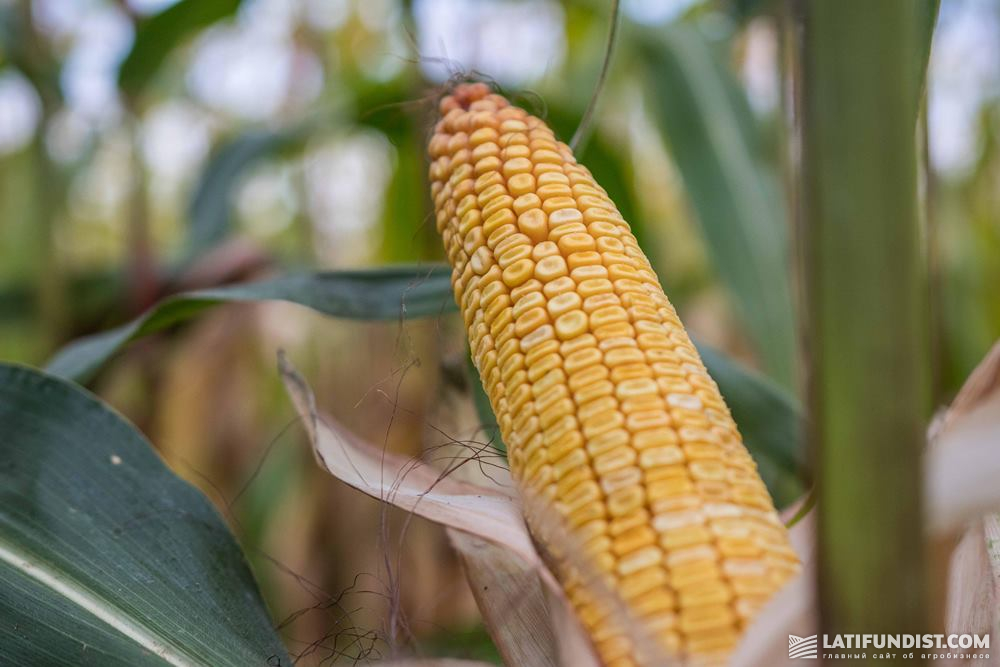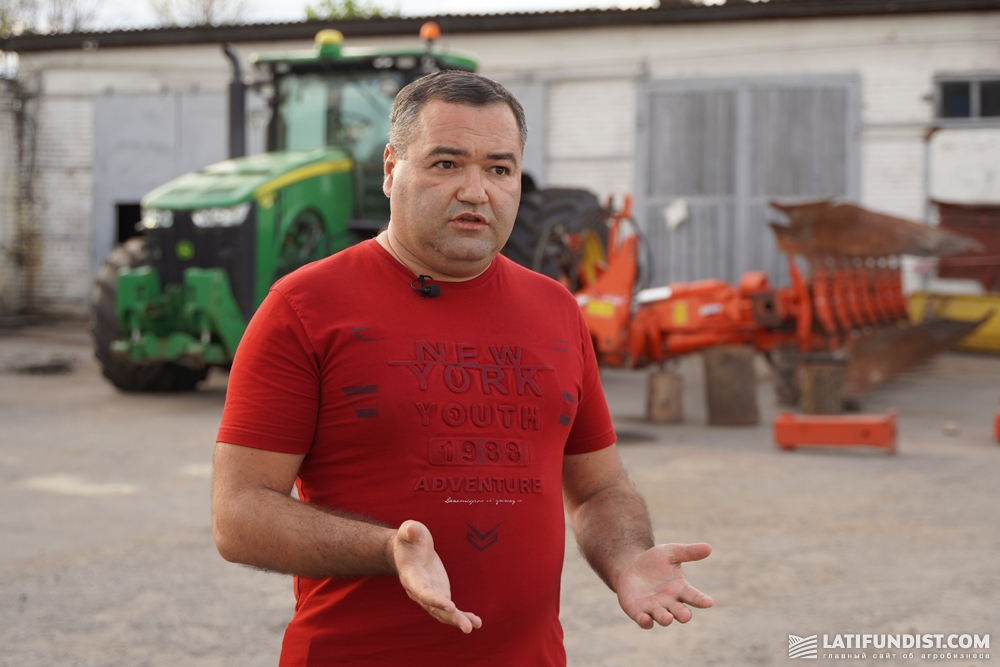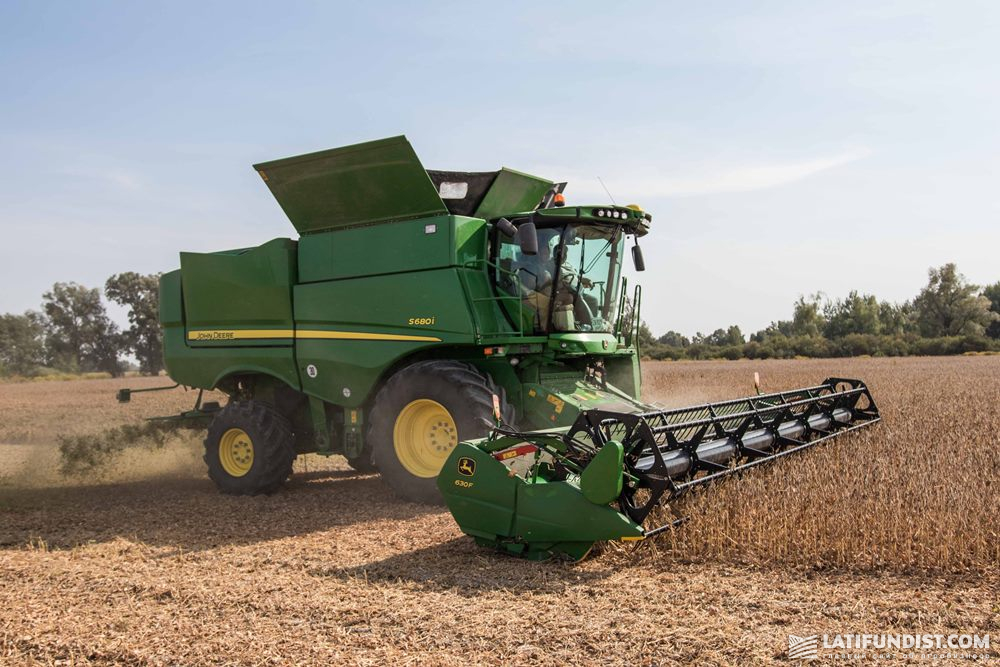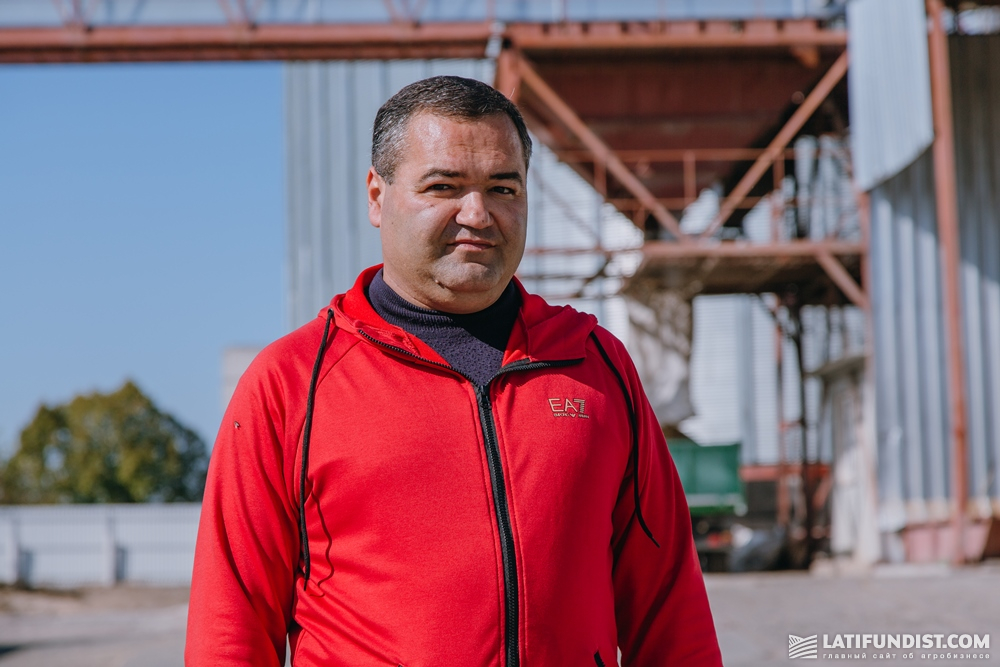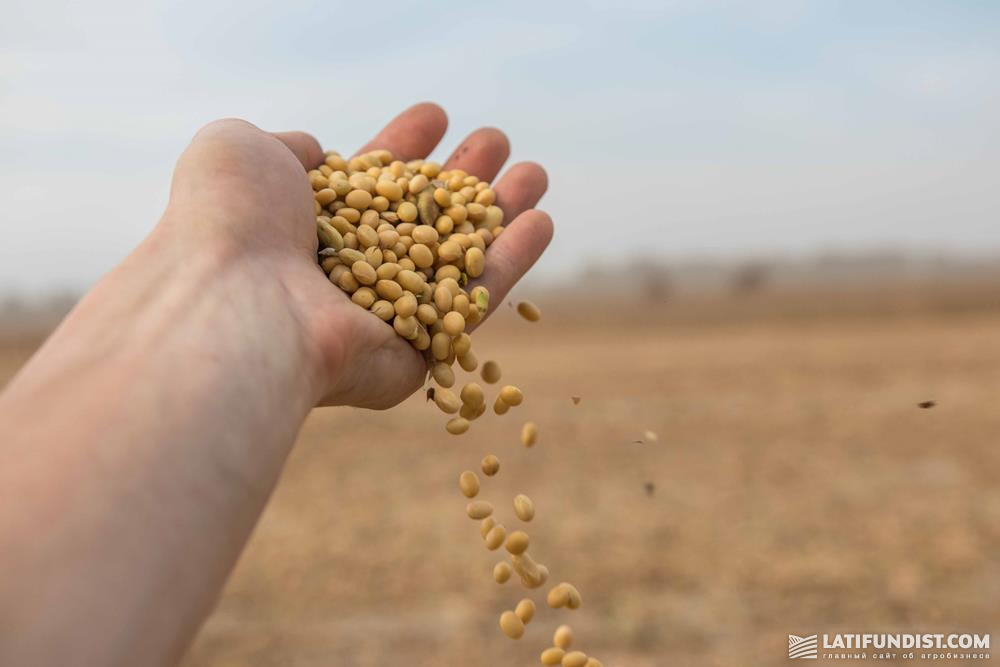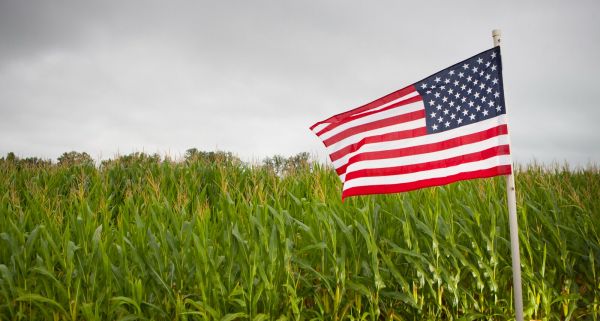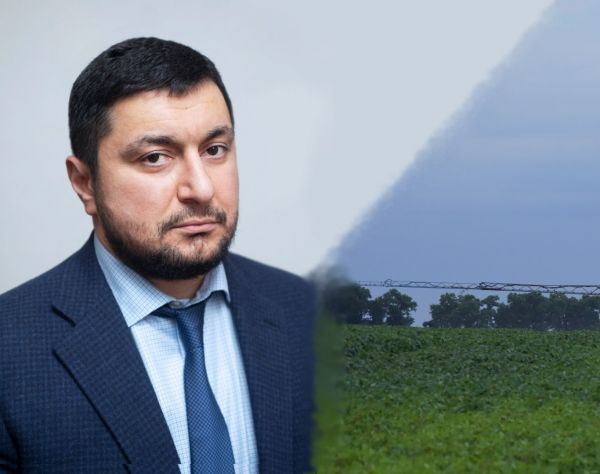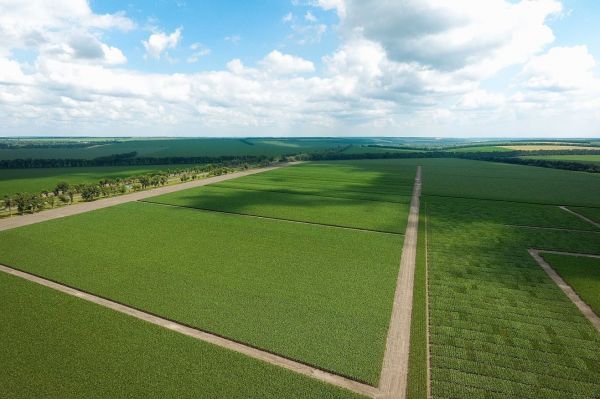Soybean-Corn: American Crop Rotation in Ukraine's Fields
All farmland leased by Misak Khidiryan's A.G.R. Group agricultural holding is divided into four clusters. We met with Davit Avagyan, Head of the Brovary cluster and Deputy Operational Director for Regional Development, and asked him about investment in new machinery, when it is decided to switch to a two-field cropping system, how the company operates in the context of climate change and whether it plans to expand its land bank.
Latifundist.com: What was your professional development in A.G.R. Group?
Davit Avagyan: I watched the formation process of the Brovary cluster from 2013 through 2016. Originally it consisted of two farms — Mega Management Project and Kolos-200, and then Traidagropostach-200 and Agrodemetra joined the cluster. Thus, in 2018 we formed a land bank of 5.3 thou. ha. I started working here in September 2013. Before that, I was in an entirely different sphere, which had nothing to do with agribusiness. I admit that not everything went smoothly at the first stages. Problems arose, sometimes we had to make difficult decisions. From these decisions, I gained experience. The management helped me a lot with their guidance and recommendations, and organizational skills did their part as well. Everything I knew and could do, I tried to make use of in agriculture.
Latifundist.com: What crops are produced in the cluster?
Davit Avagyan: Since 2019, the agricultural holding has been implementing the American system of crop rotation. It is based on a two-field cropping system: two years we grow corn, then two years of soybeans follow. We plant only these two crops in our farms. Consequently, all agricultural technologies are selected and developed for these crops. In fact, soybean is a very beneficial crop, which improves the soil structure. In the Brovary cluster, there is no black soil as such, about 1.6 thou. ha are formed by sod-podzolic soils. The rest are gray forest soils. But even in such conditions, we receive good yields and we are satisfied with the results.
Latifundist.com: Have you considered growing other crops in the future?
Davit Avagyan: We don't have such plans yet. But the agronomic service is considering the possibility of growing an alternative crop — sunflower — on low-yield lands. This process has not been launched yet, so we stick to the two-field system.
Latifundist.com: Will the land bank be expanded?
Davit Avagyan: There are such plans, and a special department is in charge of it. Even Misak Khidiryan, the owner of the agricultural holding, has set a task to expand the land bank up to 50,000 hectares. But we don't accumulate farmland just so. First, we analyze what is possible to implement on it, what we can get as a result. That is, we expand the land bank not to fulfill the owner's task, but to make this land productive. You could have seen this season's weather conditions when no precipitation occurred in July and August. It resulted in burned crops in the southern and central regions. As long as I've been working in agriculture I've never seen such a situation. We were lucky to have precipitation. Therefore, the situation with the harvest is no worse than last year.
Latifundist.com: Given the climate change, is the holding considering investment in irrigation?
Davit Avagyan: At this point, no. It is expensive and not feasible to irrigate 5.3 thou. ha. We will not produce enough harvest to cover the costs. Besides, we already have problems with groundwaters. Because of the drought, they are moving downward. If before they were at a depth of 7-8 meters, now they go down to 15 meters and lower. And when groundwater is pumped out, the hydro-balance of the soil is destroyed and the environmental balance is disturbed. On this basis, we have preservative agricultural technology. If it rains, we expect harvest. If it does not rain, we hope that the soil tillage will help. By the way, on a 10-point scale, it has always worked in such cases at 8-9 points.
On soybeans, for example, we do not apply additional fertilizers. We choose the optimal protection system, the appropriate soil tillage. And it pays off — the fields are clean.
There must be a thorough agronomic control over the crop. It is our custom that each field is monitored on a daily basis. Agronomists go to the fields, conduct checks. If there are problems with pests, the chief agronomist of the holding receives information immediately. We actively implement technologies of precision farming. We use drones to photograph crops, and if we see any problems, we respond promptly. In addition, agronomists do agrochemical analysis of soils and use special applications to see if there are problems with the vegetation index. No operation in the field is done without the agronomic service. The operations director and chief agronomist travel to clusters twice a week to be updated on how things are going in places.
Latifundist.com: What machinery have you purchased this year?
Davit Avagyan: We select the equipment depending on the production technology and climatic conditions of the region. Every year, A.G.R. Group invests in modern machinery, since the repair of old equipment costs the company as much as the purchase of new one. This year, the Brovary cluster received two Case IH True-Tandem 335 VT disk harrows, four Case IH Ecolo-Tiger 875 disk rippers, two John Deere 8345R tractors and 8-row corn header Olimac Drago GT.
Next year we also plan new purchases: we want to buy new self-propelled sprayers, as ours have already depleted their working life. And so the need for agricultural equipment is filled. That is, almost all our machinery is new and there is no need for additional purchases. And there is no sense in buying equipment to keep it idle. It is economically unprofitable.
Latifundist.com: How is the work with land share owners arranged in the cluster?
Davit Avagyan: We have developed loyalty programs for shareholders. For example, we annually provide free ploughing of vegetable gardens. In previous years on Easter and Independence Day, the company supplied each shareholder with foodstuffs. But this spring, due to quarantine restrictions, we did not hold such events, so there would be no crowds of people. We try to find a common language with the shareholders. If the land department does not succeed, I myself meet the people and try to solve all disputable questions. People are different, and we have to find an approach to each of them.
Latifundist.com: How do you hire personnel?
Davit Avagyan: Interviews with applicants are conducted by the chief agronomist, engineer and me. We offer only official wages. Each type of work has its own rates. A person after working a shift can call the dispatcher and find out how much he earned during the day. So everything is transparent. Wages are paid twice a month and only to the bank cards. There are no unofficially employed people. For example, when I was contacted by a man having a disability group, we found a suitable job for him and formalized it. All employees get free meals. Some of the employees have meals in our canteen, and we provide pouches for the machine operators in the field.
Latifundist.com: How do you prevent theft?
Davit Avagyan: There has been no such thing as fuel theft in our cluster for a long time. After the cluster was formed, we immediately installed a licensed filling station. Using the control system we monitor fuel consumption. Fuel tanks are equipped with fuel level sensors. As for the theft of crops, the drivers have a special card. Once they approach the combine harvester, they have to identify themselves with this card. If the card is not identified, the auger will not start grain unloading. At first, the system was tested on our own machines, but now hired machines are also equipped with it.
Latifundist.com: What's the hardest part of the job for you?
Davit Avagyan: To take a vacation is. I work 365 days a year, 24 hours a day. I was in my home country, Armenia, five years ago. I very much want to take a vacation there, but it does not work out. The plans are made, but in the end, the sense of responsibility says: "You have to stay". Yes, I do have vacations. Most often I rest in winter. I fully devote this time to my wife, son and daughter. But I still keep in touch with my subordinates. We have it so that even if something happens at night, for example, a harvesting campaign is in progress and a breakdown occurs, I will know about it instantly.
Latifundist.com: Thank you for the time spent with us today and a pleasant conversation!
Natalia Rodak, Latifundist.com

